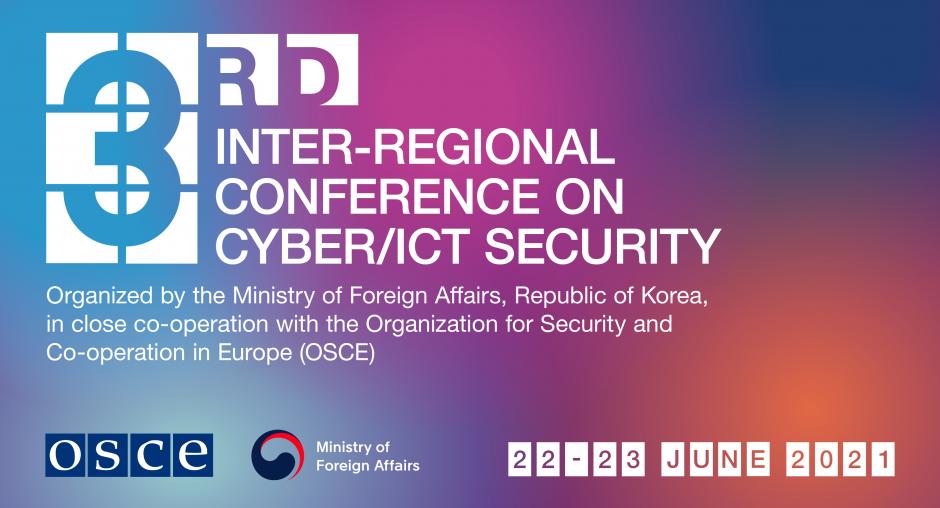Cyber/ICT security between OSCE and Asian regions focus of OSCE and Republic of Korea-hosted discussion

How international co-operation can lead to a more stable, predictable and safe cyberspace, was the focus of the 3rd Inter-Regional Conference on Cyber/ICT Security. The Republic of Korea and the OSCE organized the event, held in Vienna in a virtual setting on 22 and 23 June, with the participation of 280 governmental and non-state representatives.
The event took place closely after the adoption of the UN Open-Ended Working Group and the UN Group of Governmental Experts consensus reports on cybersecurity. Speakers emphasized that these reports have affirmed and strengthened the “acquis” of international ICT security for the first time since 2015. This includes a much greater degree of recognition of the role of regional organizations in raising awareness about the UN framework on responsible state behaviour in cyberspace and its practical implementation.
The Vice Minister of Foreign Affairs of the Republic of Korea, Choi Jongmoon, described inter-regional co-operation on confronting common cyber threats as “indispensable.” OSCE Co-ordinator of Activities to Address Transnational Threats Alena Kupchyna emphasized the role regional organisations play — such as the OSCE — “and how cross-regional exchanges can establish new avenues for collaboration and mutual learning”.
Participants agreed that more can be done to build trust and encourage practical co-operation between regions. Speakers shared ideas on how to bolster such co-operation, whether formally, under UN auspices, or informally, through joint cybersecurity exercises, capacity-building initiatives and joint regional implementation of specific confidence-building measures (CBMs).
The 16 CBMs adopted by OSCE participating States, due to their practical and depoliticized nature, are a proven tool for strengthening inter-State collaboration. CBMs are adapted to regional needs and serve as good examples for cross-regional adaptation, facilitating transparency, co-operation and exchange of best practices.
The importance of a multi-stakeholder approach to cybersecurity was highlighted throughout the conference. Panellists emphasized the role that these sectors play in securing critical infrastructures, education and capacity building. They called for the facilitation of non-governmental participation in multilateral discussions, highlighting what these actors can bring to the table.
In a discussion on addressing gender-perspectives in cyber policy, speakers presented innovative ideas and recommendations on how to incentivize and ensure meaningful participation of women in cyber/ICT security, through capacity-building activities and role models. Practical proposals on the implementation of individual OSCE CBMs in a more gender sensitive manner were particularly interesting.
Deputy Minister for Multilateral and Global Affairs of the Republic of Korea Ham Sangwook closed the conference with the statement: “Co-operation between regions is becoming concrete and contributing to the enhancement of regional and international cyber stability.”
